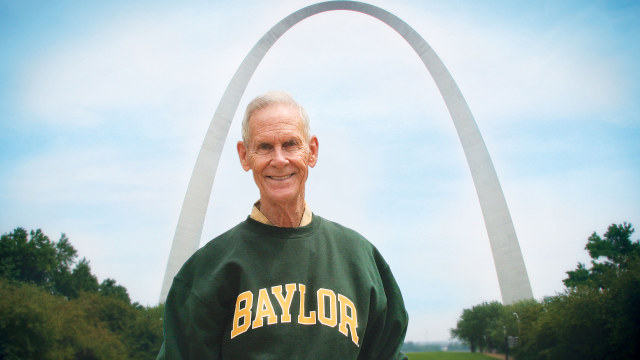By Raylee Foster | Staff Writer
Harold Dunn, a 1954 alumni who never visited the university after graduating, left his $6 million estate to the School of Music, which will be named the Dunn Center for Christian Music Studies.
Dunn, a retired elementary school music teacher of 30 years, passed away in December 2022. School of Music Dean Gary Mortenson said Dunn inherited his family’s wealth from previous generations.
Mortenson said Dunn wanted to invest his money into something that mattered since he was the final descendant in his family. Mortenson said Baylor, like all universities, has faced highs and lows, but the university’s current success made the donation one of confidence for Dunn.
“Through good fortune and maybe through the grace of God, Baylor’s stronger than ever, and people are paying attention to it on a national level, and all of that bodes well for the future,” Mortenson said. “So I think [Dunn] could give to Baylor in the confidence that this multigenerational accumulation would survive for many generations to come.”
Dunn’s decision to donate to Baylor had been set in place for roughly 13 years, yet his relationship with the school was unlike that of other large donors.
Baylor’s music school has received generous donations in the past, but Dunn’s made $6 million the largest the school has seen in the past 100 years, according to the university’s website.
Although Dunn did not actively participate in Baylor dinners, campus visits or small donations throughout his life, he was a dedicated fan of the music school. Mortenson said music is a language, and it was one that spoke wonders to Dunn during his lifetime.
“I do think the reason that he made the gift was that there was a common thread in that [Dunn’s family was] devoutly Christian, they were devoutly Baptist, and music impacted the quality of their lives,” Mortenson said. “I think music is one of the highest forms of communication ever invented.”
The message music provided throughout the Dunn family was especially present in both Harold Dunn and his sister’s life. Dr. Randall Bradley, director of the Center for Christian Music, said he worked closely with Dunn to find the perfect way to implement his legacy: in Christian music.
Throughout the process of preparing for the donation, Dunn was consistent in saying the donation was not from him, but was from his family and rooted in their love for music and their faith.
“His sister was also a musician, she was a church organist as well as an elementary teacher; the church music program at Baylor was kind of the merging of their fields and their love for music and their love for the church,” Bradley said. “He was always really particular that he was giving, not just for himself and his own money, but that this was his family’s money.”
In his donation, though specific to Christian music programs, Dunn left little direction on how exactly the money should be spent. He entrusted Bradley with making decisions that would benefit the school and carry on his legacy.
Mortenson said they are anticipating roughly 5% of the funds will be yielded each year, meaning $300,000 will go into various projects in the first year.
Although major changes might not be immediately present as a result of the donations, some Christian music majors hope to see certain changes made in the program.
Corpus Christi junior Zariel Rivas said she hopes to see money directed toward renovations and scholarships.
“I would love the money to go into scholarships, of course, especially for those who are in need in order to enjoy their time here at Baylor,” Rivas said. “I think this would be a great time to revamp some of our classrooms in Waco Hall as well as the Roxy Grove practice rooms.”
Mortenson said Dunn observed Baylor’s Christian music studies program from afar during his life, and students in this department represent the program well. The school of music focuses on more than just musical advancements, but also on its development and character of those who form part of it — something Dunn recognized and aspired to support with the legacy he and his family left behind.
“Our students are very fine musicians, but they’re also really good people, and it’s that combination that serves them well both here and when they leave here,” Mortenson said. “I think that’s where the commitment to faith and the commitment to working on yourself as a human being are kind of central aspects of what it means to be at Baylor. As President Livingstone is always saying, the world needs a Baylor. And I think that resonated with Mr. Dunn.”



